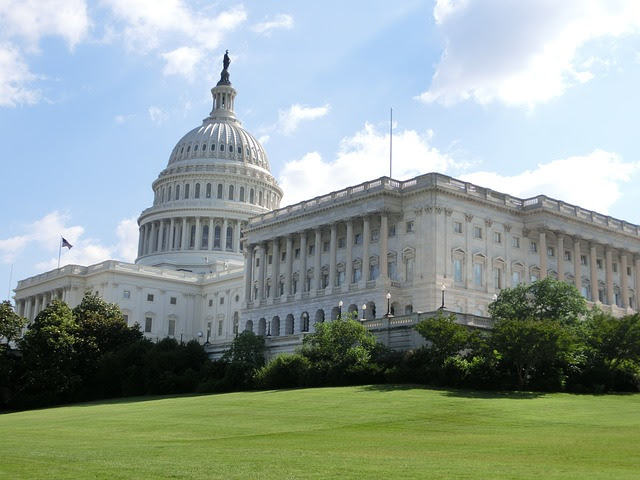FABBS News Highlights: December 19, 2019
Monday, December 23, 2019
(0 Comments)
Posted by: Psychonomic Society
|
|
|
 Senate
Poised to Vote and the President Expected to Sign a Budget Deal for FY2020 Senate
Poised to Vote and the President Expected to Sign a Budget Deal for FY2020
On December 17th, the House of Representatives voted to approve two minibus spending packages that together contain all 12 Fiscal Year 2020
spending bills. The Senate is expected to vote on both minibus packages on Thursday, with only one day until the December 20th deadline. In order to avoid a government shutdown, the President is expected to sign. If passed, these bills will fund the federal
government until September 30, 2020. Read
more »
|
|
 Advisory
Committee for SBE Meets, Discusses Goals and Challenges Advisory
Committee for SBE Meets, Discusses Goals and Challenges
The fall meeting of the NSF Social, Behavioral, and Economic Sciences (SBE)
Advisory Committee took place on December 12-13. This committee meets twice yearly to provide advice, recommendations, and oversight to the Directorate concerning support for research, education, and human resources. Read
more »
|
|
IMPORTANT COMMENT OPPORTUNITIES
|
|
FABBS will be submitting comments on all four opportunites below. You are invited to share any points that you would recommend including with
Juliane Baron (jbaron@fabbs.org). Please also consider submitting comments directly.
|
-
NIMH Request For Information on Strategic Plan for Research –
January 1
-
NEI Request For Information on Sttrategic Plan "2020 Vision for the Future" -
January 8
-
NIH Request For Comment on Draft Policy for Data Management and Sharing -
January 10
-
Office of Science and Technology Policy (OSTP) Request For Information on Research Environments -
Extended to January 28
|
|
 FABBS
Annual Meeting Features Speakers from NIH, NSF, and OSTP FABBS
Annual Meeting Features Speakers from NIH, NSF, and OSTP
FABBS held its Annual Council of Representatives meeting on December 9th, 2019. This meeting is an opportunity for representatives from our
member societies and our Board members to be updated on FABBS Advocacy efforts, discuss a range of topic affecting FABBS fields of sciences, and hear from and engage with colleagues from the National Institutes of Health (NIH), the National Science Foundation
(NSF), and the Office of Science and Technology Policy (OSTP). Read
more »
|
|
 Lila
R. Gleitman, PhD Lila
R. Gleitman, PhD
Lila R. Gleitman is a Professor of Psychology
and Linguistics at the University of Pennsylvania. She earned a B.A. in Literature from Antioch College in 1952. As a student of Zelig Harris at the University of Pennsylvania, she received her Ph.D. in Linguistics. She was on the faculty at the University
of Pennsylvania beginning in 1972, where she served as the dissertation advisor of numerous luminaries in the psychology of language. Professor Gleitman’s research in language acquisition has been recognized by many organizations, and she is an elected Fellow
of the American Psychological Association, the Association for Psychological Science, the Society of Experimental Psychologists, the American Association for the Advancement of Science, the American Academy of Arts and Sciences, and the National Academy of
Sciences. She is a recipient of the David Rumelhart Prize, and she has served as President of the Linguistic Society of America. Read
more »
|
|

Q&A
with Nora Newcombe, FABBS President
FABBS would like to thank
Nora S. Newcombe,
Temple University, for her tremendous service to FABBS. Dr. Newcombe will be ending her two-year term as FABBS President at the end of the year. We asked her for some parting words of wisdom. Read
more »
|
|
|
|
Breaking News
Apply and Submit
Attend
Funding
Read
Share
|
|
UPCOMING FABBS MEMBER SOCIETY ANNUAL MEETINGS
|
|
FABBS News Highlights is a semi-monthly electronic newsletter published by the Federation of Associations in Behavioral and Brain Sciences with
the goals of keeping scientists updated on federal budget and policy issues affecting the sciences of mind, brain and behavior; recognizing the research contributions of leading scientists; and sharing research findings to inform policies and programs.
Editor: Juliane Baron
Contributors: Juliane Baron, Diana Liao
|
|
FABBS Mission
FABBS promotes human potential and well-being by advancing the sciences of mind, brain, and behavior; promoting scientific research and training in these fields; educating the public
about the contributions of research to the health and well-being of individuals and society; fostering communication among scientists; and recognizing scientists who have made significant contributions to building knowledge.
|
|
|
|
|
|
|
|
|